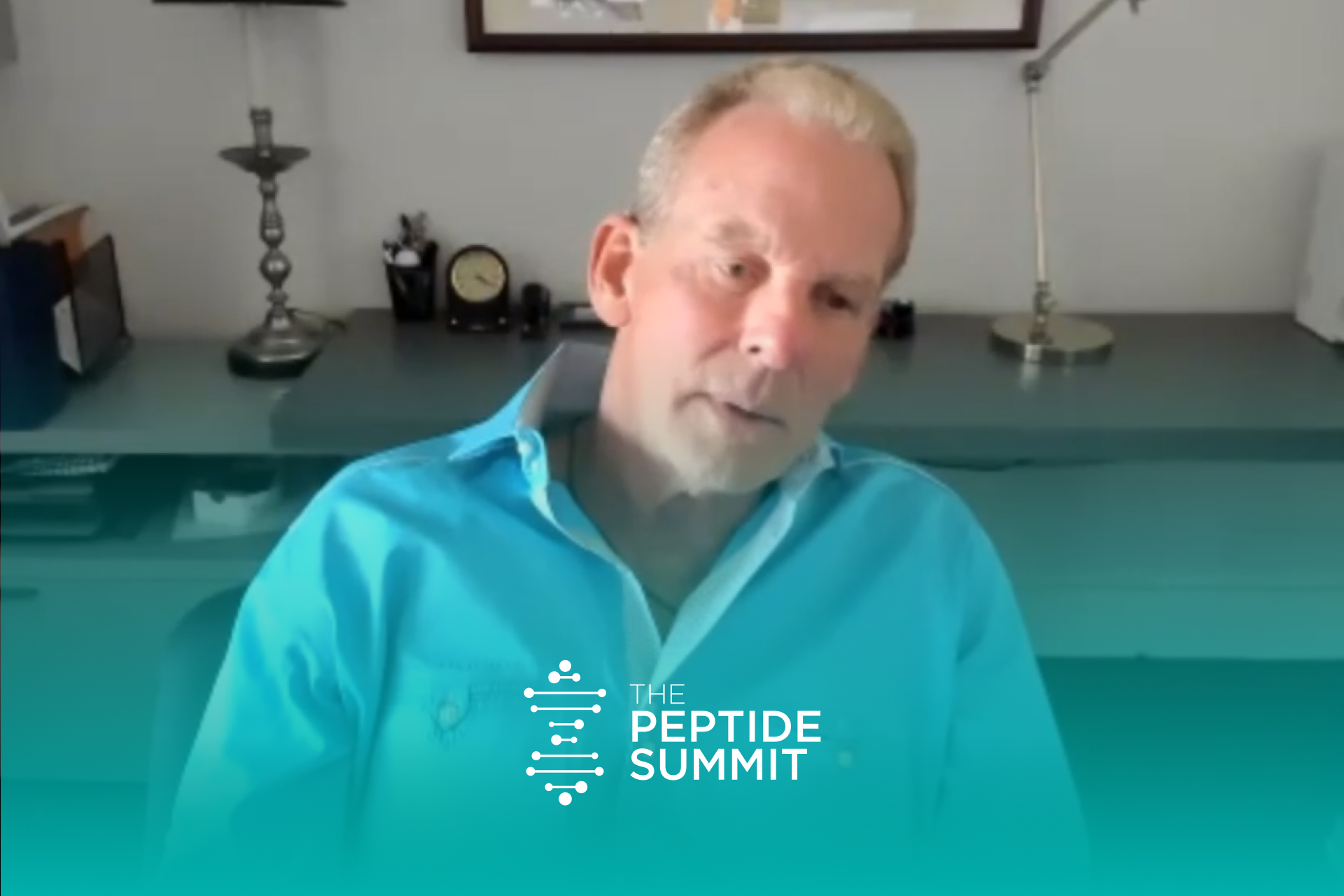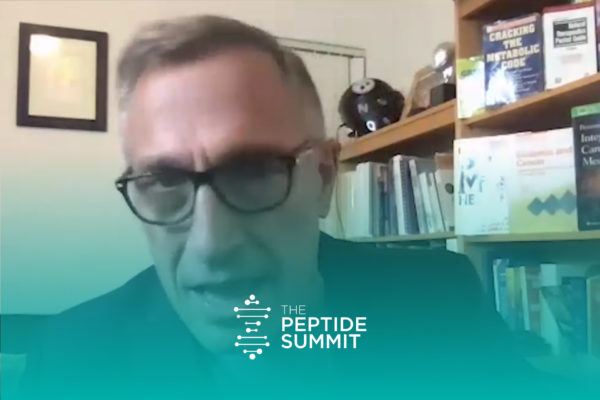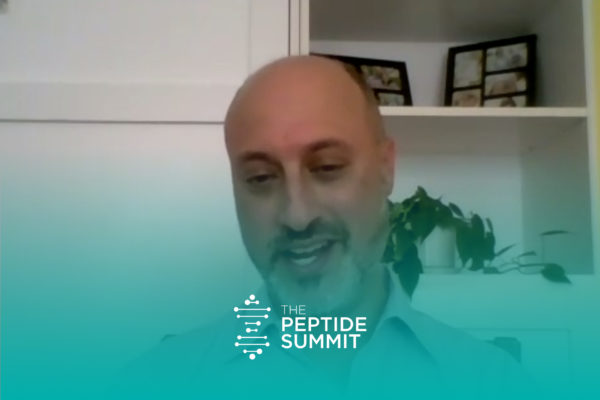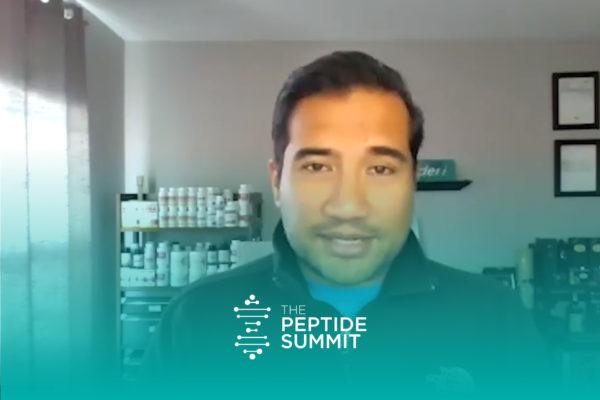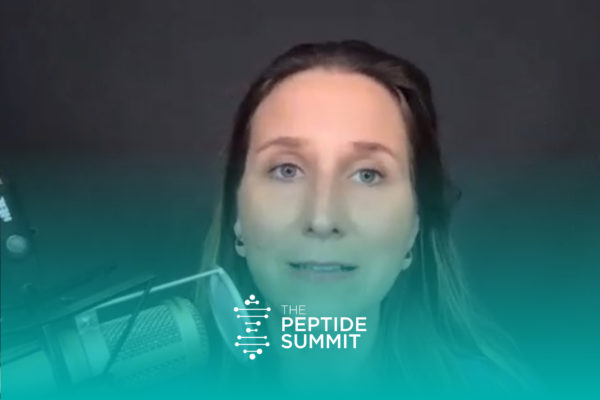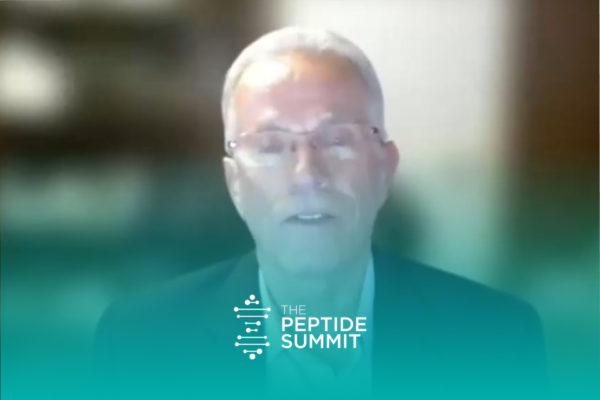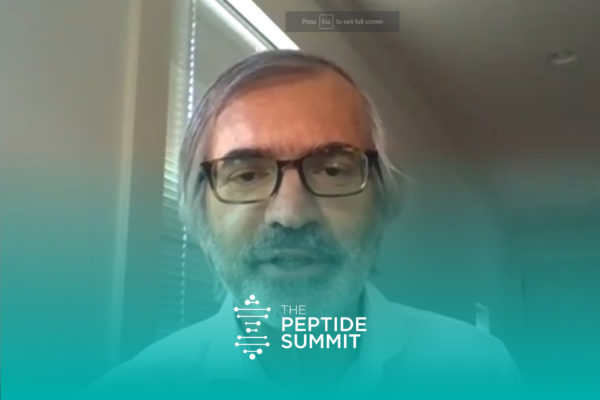Join the discussion below
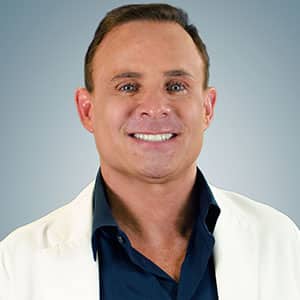
Kent Holtorf, MD is the medical director of the Holtorf Medical Group (www.HoltorfMed.com) and the founder and medical director of the non-profit National Academy of Hypothyroidism (NAH) (www.NAHypothyroidism.org), which is dedicated to the dissemination of new information to doctors and patients on the diagnosis and treatment of hypothyroidism. He is... Read More

David Calvo M.D earned his undergraduate degree in Microbiology from the University of Texas at Austin. He then completed his master’s degree in Cancer Research at M. D. Anderson Hospital and Tumor Institute and the University of Texas Graduate School of Biomedical Sciences in Houston. R. David Calvo M.D. was... Read More
Dr. Calvo has many orthopedic accolades under his belt including fellowships in Sports Medicine: Arthroscopic and Reconstructive Knee Surgery and Reconstructive Surgery of Degenerative Joints. He has been applying his expertise for over 28 years and has a special interest in sports injuries and artificial joints for the upper and lower extremities. Being a triathlete himself, Dr. Calvo knows the importance of preventive therapies in addition to integrative approaches for bone, muscle, and tendon repair.
Join us on this deep dive into athletic performance and wellness!
Related Topics
PeptidesKent Holtorf, M.D.
Hello, we’re back. We had a little technical difficulty so we’re kind of gonna go ahead without the PowerPoint. So we were talking about basically the different ways that you practice and how you got into this and how you got into exosomes.
R. David Calvo, M.D.
Yeah, so let’s motor through the different—our purpose is peptides, but let’s talk about the basic cellular components. So, exosomes basically are expressions of the cell wall with intracellular components which include nucleic acids and proteins and various other incendiary things from within the soup of the intracellular milieuand. Those things are passed on to either the surrounding extracellular fluids or in fact merged with and entered into the surrounding cells and what we refer to as paracrine. The autocrine means what happens in the cell, paracrine, which means what happens near the cell. Endocrine happens distant from the cell, like from the hypothalamus down to the testicle, the hypothalamus is in the brain. So we can actually—I have three different ways that these things help. They help themselves, they help the neighboring cells, and they help distance cells and systems. So exosomes are an expression of a cell and they can be—and they’re almost always an expression of the STEM cell from which they are mothered. The industry has been able to replicate and grow up cultures of mesenchymal STEM cells or medicinal signal cells, if you will, depending on whose terminology you use.
Kent Holtorf, M.D.
Depends on the week.
R. David Calvo, M.D.
Whether you’re talking to Dr. Kaplan or somebody else. But those cells then can be milked, so to speak. It’s like talking about a cow, you keep the cow in the barn, but you take the milk to the store. So the exosome and its contents are the milk, and you supply the nutrients and the wellbeing to the surrounding cells and distance cells via exosomes, and you never have to use a STEM cell to do that. So it’s kind of a novel idea. Now, we’re going back, and retrograde back to the concept of giving STEM cells and we were talking about cancer as being—we want to replicate in the bone marrow lymphocytes and leukocytes to regrow the bone marrow that we’ve wiped out because they had a cancerous immature cell inside the bone marrow that was going to kill the patient.
They got rid of them and then replenish them with STEM cells from themselves, if they were stored at birth, or from a twin sister, or from a donor. That’s a whole different animal. There are STEM cells that can be—that we use that can be derived from virtually any tissue and the cells that I’ve used, thus far, started out in the realm of bone marrow because I’m an orthopedic surgeon and I live in bone. So we can extract bone marrow in the operating room when we’re operating and actually put that into a fracture, or a knee, or whatever tissue that we’re operating on, whatever’s injured, and it can accelerate the healing process, and this is what you said. We’re not counting on necessarily the replication of those cells that we’re extracting and reinserting, whether they’re perinatal, or autogenous, or perivascular, or lipogenic, or whatever they’re coming from.
It doesn’t really matter because if you tag those things and if you can tag them with a radioactive tracer or whatever, you really don’t find them after more than 5 to 7 days. In rare cases now and then you’ll find one in the lungs or somewhere where they set up camp, but they don’t reproduce themselves and they won’t grow a liver. That’s not their purpose. What they do is they supply the substances that are within them by either the cell wall of the STEM cell destructing and spilling its contents, or by [inaudible] exosomes, or whatever method reveals the contents within. Those substances go on to make the surrounding tissues more normal. Interestingly enough, they don’t really affect normal cells. They affect abnormal cells. If the cell is good, they don’t supercharge it. They just go to work on things that are not right, and they optimize them.
Kent Holtorf, M.D.
They can also stimulate that tissue STEM cells to then repair the tissue as well.
R. David Calvo, M.D.
That’s exactly right. They can reconstitute the wellness and youth of the surrounding STEM cells in the tissues that are part of the nascent STEM cell population in the patient. They can supercharge those cells to make them better by virtue of the supplies that they give them. There are a lot of stuff we don’t know yet and a lot of this stuff is propositional, if you will.
Kent Holtorf, M.D.
I mean, that’s medicine, you know? The more you learn, the more you know you don’t know.
R. David Calvo, M.D.
That’s [inaudible].
Kent Holtorf, M.D.
I think that’s the problem. It’s the doctors that think they know everything. The ones that know the least are most adamant they’re right.
R. David Calvo, M.D.
Exactly. So if we go onto the next level, which is peptides, which are components of STEM cells, the cellular milieu within the STEM cell, the cytoplasm, if you will. They are also exuded outside the cell in the form of exosomes, and also just exported through the cell wall through pores, et cetera, lysosomes, whatever. They can be expressed from the thalamus—from the hypothalamus, the pituitary, and turn on components of the pituitary. For example, let’s just use for a minute CJC-1295 with Ipamorelin, or any of the other growth hormone releasing hormones and growth hormone releasing peptides. They basically can turn back on a deficient or slow pituitary to specifically produce a certain necessary hormone or prohormone that the body has become deficient in.
We learn very early on that if you take an old man who’s 80 years old that died, unfortunately, and you biopsy his brain, take the pituitary, grind it up and measure the growth hormone in it, his brain—growth hormone for the most part is the same amount, quantity wise, concentration wise as a 21 year old pituitary. But the difference is the releasing hormones, the growth hormone releasing peptides that release that growth hormone are not around. They don’t—or they are deficient. It’s kind of like having a skydiving plane full of paratroop parachuters and you’ve got one guy stuck in the door who doesn’t want to jump and you got the instructor puts a boot in his ass.
Kent Holtorf, M.D.
I have not heard that analogy before.
R. David Calvo, M.D.
But that—I means that’s an essence. It’s more of an orthopedic analogy, but it’s a concept, a mechanical thing—maybe a chemical thing—that they found that if they give the combination of growth hormone releasing hormone with growth hormone releasing peptide, they get a normal 8 to 10 pulses of growth hormone a day, instead of a plateau that you get by giving growth hormone, which is a much more physiological, normal way and the body knows what to do with that. When it doesn’t know what to do with a flat or a decrescendo flat plateau of growth hormone, it doesn’t quite know what to do with it and you don’t get the side effects from it, et cetera, that you do from growth hormone.
Kent Holtorf, M.D.
Yeah, because you can’t overdose, it just stops working if you try to overdose it. Now, do you use more growth hormone, like do you inject it in the joints as well?
R. David Calvo, M.D.
I haven’t injected growth hormone in the joints because I’m not sure I need that. Did I just screw up our screen? Are you okay?
Kent Holtorf, M.D.
Yep, we’re good.
R. David Calvo, M.D.
Okay. I haven’t injected—I’m not sure that—
Kent Holtorf, M.D.
Yeah because most of it’s done through IGF-1, you know? Most of this work and do you—and I think what I was trying to get at I guess was that with growth hormone you look at—send the blood to the lab, the lab sends back, 95% of the people is normal. So the highest and lowest 2.5% are considered abnormal and most people they take are sick and so the growth hormone “normal” is so low that it’s crazy. So you go to the doctor, doctor says, “Oh, your growth hormone is normal.” It’s like saying you get a D-, you know?
R. David Calvo, M.D.
It’s the same with testosterone.
Kent Holtorf, M.D.
Yup. Every decade, they just lower the normal range.
R. David Calvo, M.D.
And I tell my patients, right or wrong—I think I’m right, but I tell my patients that my idea is to optimize you to a 35 to 40 year old man or woman for the rest of your life. I want to do it in such a way that I don’t endanger you. I know that IGF-1 in an elderly patient could potentially endanger them because it could promote carcinogenesis in some people. So I aim at trying not to raise their IGF-1, but raise their growth hormone level.
Kent Holtorf, M.D.
Yeah, I did a review. I looked at every single study published up to that point, published my results. No study has ever shown giving growth hormone causes cancer.
R. David Calvo, M.D.
Well, I love to believe that, but I don’t want to give somebody growth hormone and they get a cancer and they end up in some attorney’s office and say—you know, it’s kinda like testosterone causes heart disease.
Kent Holtorf, M.D.
There’s medicine. and then there’s—you know? Now I do have a little concern of giving IGF-1.
R. David Calvo, M.D.
I do too. I do too.
Kent Holtorf, M.D.
Now growth hormone will cause you know—IGF-1 in a test tubes gonna stimulate—it’s a growth factor, it’s going to stimulate growth. Now IGFBP3—you know, so it’ll make both of those—actually is very anticarcinogenic.
R. David Calvo, M.D.
Right.
Kent Holtorf, M.D.
So they balance out. But yeah, and that’s the thing I think with peptides, they kind of do a lot of things where like, if you just give IDF-1, you’re just gonna do one thing, you know?
R. David Calvo, M.D.
Yes, and I think that integrative approach is—well, it’s much more physiological. It’s more what we are. So if we move on to some of the other musculoskeletal things that I do, my favorite cocktail, if you will, for anybody over 35 or 40 that is having some issues, they’re starting to get burned down
like I was, is I like to give them a growth hormone releasing hormone and peptide that doesn’t raise their appetite and doesn’t raise their IGF-1 too much.
Then I like to give them BPC-157, which is a very powerful reconstructive repairative anti-inflammatory type of peptide that Pavlov discovered at the turn of the century. Then in ’64, or whatever it was, in Eastern Europe they rediscovered it and found a way to synthesize it and stack 15 peptides. Now it’s probably one—it is one of the most used peptides in the world and probably the safest in the world. You can bathe in it and not get sick from it.
Kent Holtorf, M.D.
Yeah. Now was that cocktail shaken or stirred?
R. David Calvo, M.D.
I drink everything straight up.
Kent Holtorf, M.D.
Alright. [Laughing] Bad joke, it’s getting late. But yeah, the BPC, it just does so many things and I give lectures on it and you list everything it does, it’s almost embarrassing because it sounds like snake oil, you know?
R. David Calvo, M.D.
It sounds like Dr. Hook’s medicine show.
Kent Holtorf, M.D.
Yeah, yeah.
R. David Calvo, M.D.
But I can tell you—I mean, I’m gonna stay on this stuff for the rest of my life, as long as I can afford it. I mean, I’m almost—[inaudible].
Kent Holtorf, M.D.
Well, you know, the FDA is trying to take all this away, trying to take hormones away, tyroid [inaudible] again, it’s crazy.
R. David Calvo, M.D.
Let’s just say I’m almost 71 years old and I function at the level I was when I was 35 or 40.
Kent Holtorf, M.D.
You look great.
R. David Calvo, M.D.
Well, I feel great. I want to stay off a porch.
Kent Holtorf, M.D.
Have you noticed how many people feel great? Like at a party, I’m telling you, either someone always comes up to me, it’s either them, their family member, or their friend is so sick. I think 20 years ago, 10 years ago, I didn’t get that. It’s like, everyone’s sick. You’re saying, “I’m feeling great”, it seems that’s so rare now, you know?
R. David Calvo, M.D.
Yeah. I mean, it is rare unless somebody is doing something. There’s so few of us that have found that Holy grail to where we can work together—are you still there?
Kent Holtorf, M.D.
Yeah.
R. David Calvo, M.D.
Yeah, okay. We’ve found some of the Holy grail and we’re starting—we’re hanging onto it as long as the FDA doesn’t take it away from us. And we’re certainly doing no harm from what I can tell.
Kent Holtorf, M.D.
Well, that’s the thing. Show me someone who’s been harmed. If it actually works and is safe, they’re more likely to take it away because they are the—basically enforcement arm of Big Pharma.
R. David Calvo, M.D.
Well, let’s shift over to the thymus peptides.
Kent Holtorf, M.D.
Sure.
R. David Calvo, M.D.
The Thymosin alpha-1 and the Thymosin beta-4. Those are the two predominant ones and Thymosin alpha-1 is more of an immune modulatory peptide and Thymosin beta-4 is more of a repair and recovery type peptide. They both work in the brain. They both work on the hair. They both have broad wide spectrum of benefits, kinda like BPC-157. I use Thymosin alpha-1 for people that have viral syndromes, like my granddaughter got mononucleosis with cytomegalovirus. I put her on everything known to man. The ultimate cocktail. I brought her over here from UT and bedded her down for 3 days. I had IVs running with vitamin C and Quercetin and high dose vitamin C, zinc, everything known to man. Put her on Thymosin alpha-1 twice a day and that girl was flat on her back moribund, within 36 hours she was up smiling, running around.
Kent Holtorf, M.D.
Yeah. It’s approved in 30 countries for everything from cancer, infections—
R. David Calvo, M.D.
Knowing what I know about mononucleosis before I knew anything about mononucleosis, you don’t get up that quick from mono.
Kent Holtorf, M.D.
Yeah.
R. David Calvo, M.D.
It kicks your butt.
Kent Holtorf, M.D.
And that’s the thing, like how many—you know, it’s commonplace now I think with the peptides and they saved my life. I see it with so many people, they reversed my heart failure in the lung when I had it, is that it’s—you know, what do we have that’s so safe and you get so many profound benefits, you know?
R. David Calvo, M.D.
I mean, to me, there’s nothing out there that has a blood edge on the backside of the sword. You know? We have the ability to carry sharp knives and we have the—and most of the time our knives are sharp on both edges.
Kent Holtorf, M.D.
Now, are you using TB4-FRAG?
R. David Calvo, M.D.
I’m using—well, now I am.
Kent Holtorf, M.D.
We’ll send you some, yeah.
R. David Calvo, M.D.
Well, I’ve got some. But I’ve been using TB4 injectable and then recently started using the product that your organization manufacturers, and then my latest order has the TB4-FRAG.
Kent Holtorf, M.D.
Well, we love feedback, so we’re going to start an IRB because we want to gather data so we’d love to hear—[inaudible].
R. David Calvo, M.D.
Let me just capsulize real quickly. My protocol for say an orthopedic surgical patient. I’ve got two or three patients right now that are recovering from ACL reconstructions. I put all those people on TB4, on BPC. I put them on one of the growth hormone peptides and growth hormone releasing hormones. I put them on—now the only reason I don’t is if they’re in competition or getting out of competition testing, because TB4 and the growth hormone peptides are WADA negative—they’re WADA—bad. So WADA will not allow you to do that. They’re considered performance enhancing, and you can’t do that on people that are gonna be tested. So you gotta be careful, that’s a disclaimer.
Kent Holtorf, M.D.
It doesn’t mean it’s dangerous, it means that it gives you an advantage.
R. David Calvo, M.D.
No, no, no, they convert a three month ankle sprain into a three week ankle sprain. I’ve seen it over and over and over again. Partial rotator cuff tears, they reknit the tissues back. Now, they won’t reattach the tissues that are pulled off and on the other side of the room, but they’ll help heal it once you put it back.
Kent Holtorf, M.D.
So have you seen really significant reduction in that recovery time?
R. David Calvo, M.D.
Well, I mean, let me put it this way. Yeah, the answer is yes. I don’t want to be a politician and dodge the question, they—
Kent Holtorf, M.D.
[Inaudible] protects it.
R. David Calvo, M.D.
Yeah, the patients that I’ve worked with have shortened their recovery time significantly to the point that they go in and they’re not telling their doctors what I’m giving them. Because I told them, I said, “It’s probably not a smart idea for you to discuss this before with your doc because
he’s just gonna say I’m crazy, you’re crazy, and it doesn’t work because he doesn’t know anything about it.”
Kent Holtorf, M.D.
If a doctor doesn’t know about it, it’s quackery. I mean, it’s—they don’t know about it. They’re [inaudible].
R. David Calvo, M.D.
What happens is they go in and they’re going like, “You are doing so well.” And the patients come back to me and say, “What did he mean by that?” I said, “He’s just telling you what I told you before I ever told you we’re going to do this, that you’re going to do better than the average patient. It’s not magic. You’re not Wolverine, but it’s just going to optimize your system.” I’ve got another guy right now that just underwent a wide excision of a squamous cell, or maybe pre squamous cell. He’d had several large biopsies and then finally I told him, I said, “Quit screwing with this thing, go get the damn thing widely disected and get it out of there because otherwise you’re going to have [inaudible] to the brain.” He’s a former TCU football player, defensive, big strong guy, you know? Years ago, he’s now 55. But—sun lover, he skis with me, we like drinking tequila, so we know each other real well. I told him, quit screwing with this, go tell your dermatologist to cut this damn thing out and get a wide margin and send it to [inaudible]
Kent Holtorf, M.D.
Do you know some cosmetic surgeons doing that? I haven’t found any.
R. David Calvo, M.D.
Absolutely.
Kent Holtorf, M.D.
Yeah.
R. David Calvo, M.D.
Absolutely. Greg—I’m blocking his name right now. He has a practice in Cincinnati and Newport Beach.
Kent Holtorf, M.D.
Because hey, it makes him look good, you know?
R. David Calvo, M.D.
He does research with it where he does it—he does one side with, one side without. He does photos and I’ve been to his lectures and it is dramatic.
Kent Holtorf, M.D.
I’d love to see those. Yeah.
R. David Calvo, M.D.
Yeah.
Kent Holtorf, M.D.
I had—I broke my nose, skateboard accident, and big gash, and it was like split open.
R. David Calvo, M.D.
I can’t even see that now.
Kent Holtorf, M.D.
Yeah. I swear overnight people were like, “That was just open!” It was like separated the night before.
R. David Calvo, M.D.
Sure. Yeah. Well, I mean, we know BPC-157 works in corneal abrasions. It works in dental scenarios with gum issues. It works in ulcers.
Kent Holtorf, M.D.
We actually used BPC and TB4 for dry eye, it works well, especially in clinical trials for that.
R. David Calvo, M.D.
It works incredibly well in most of the tissues in the body. Then just to—we’re kind of running out of time—but from the standpoint of other things that we can do, and we can always do a second phase of this if you want to at a later point, but—2.0—is that GHK-Cu, which is a tripeptide that captures copper in the middle—I’m sure you’re aware of that. It works great as a foam on the hair. I literally grew back my little bit of a bald spot in the back of my head within 6 weeks. It works great as a cream on the face for minimizing wrinkles. It increases the dermis, it grows collagen, and it increases the dermis thickness minimizing fine lines and wrinkles. It helps in terms of [inaudible]—away from that, going back to orthopedics, it really does accelerate the actual collagen growth and production in healing tissues, muscle, tendon, and bone. In combination with TB4, TB4 has a predilection to restore the normal collagen and to diminish the scar collagen so that you don’t have scar to deal with in your healing naturally.
Kent Holtorf, M.D.
Yeah, it really reduces formation of fibrous tissue. Or even like diabetics, they get fibrotic kidneys, liver, so it reverses that. Now, are you injecting GHK?
R. David Calvo, M.D.
I’m doing—yes! I inject it and I use it topically as well.
Kent Holtorf, M.D.
Okay. Well, what type of dose are you doing?
R. David Calvo, M.D.
I use about 10 units, about 1/10th of a CC, and I will sometimes do it twice a day.
Kent Holtorf, M.D.
Okay. And I guess—well it depends on the size of the vile—how many milligrams is that?
R. David Calvo, M.D.
You’re gonna make me lie here. I don’t remember.
Kent Holtorf, M.D.
Yeah, usually a dose is like a milligram or 2 milligrams.
R. David Calvo, M.D.
Yeah. You know, I’ve gone back and looked at it all and I’ve looked at the numbers, to the point that I just do it by rope now that I don’t pay attention to the dose. But—what was I going to say? With respect to—Oh, with fibrosis, as you were talking about, I’m a keep it simple stupid guy, [inaudible] principle guy. For me to understand how this stuff works, I would come up with these kind of models in my brain. When we have a tissue or an injury that occurs, the normal processes, as you know, it starts out with hematoma and then fibrosis and then alignment and then hopefully colinear bonds between the collagen molecules, et cetera, and things line up and they get better over time and if you’re lucky they don’t stretch out or they don’t lump up and don’t form keloids so they don’t give you an elongated tendon and a loose knee or an ankle, whatever. What we know is that for the most part, healing is by natural—what we call either early primary intention or secondary intention is basically it’s like throwing down pickup sticks like when you’re a kid. You know that game? Where you have those little plastic sticks.
Kent Holtorf, M.D.
Yeah. They’re going be all over the place.
R. David Calvo, M.D.
You throw them down on the floor and then you align them. Well, as our body is trying to align this stuff, hopefully they align and they align side by side, but they don’t always, they end up sometimes a mess. So what—and I don’t know how, I don’t know why, but Thymosin beta-4 allows the alignment to occur more in line with the forces to give you a better strong tendon with less scar and less restricted range of motion, more pliability of the surrounding tendon and muscle. I would love to know the research behind that, I just don’t know. I haven’t delved into it—so many things.
Kent Holtorf, M.D.
I’d love to see your side, I’ll send you the research. I was going to ask you, have you seen people like with big scars that get better? Or keloids and things like that. It’s not really our population. I can see any of the studies, I just was wondering if you’ve seen it.
R. David Calvo, M.D.
It’s not something that I have dwelled on, but I know that Greg—God dang it. I can’t remember his name. Greg has dealt with that and he does biopsies and he does—he’s a very scientific guy. He’s done all this stuff and I’d love to put you guys together. He’s out there with you, he’s in Newport beach and he could have a nice conversation with you the next time you’re near one another. He’s got stuff that shows what both exosomes and peptides and everything else does.
Kent Holtorf, M.D.
And that’s—I really love STEM cells, exosomes. It might be—it’s interesting that STEM cells will secrete TB4, the exosomes will have that in there, and also TB4 stimulates STEM cells.
R. David Calvo, M.D.
That’s the other thing is that we know that TB4 is not an extraneous material. It’s a natural thymus produced and tissue produced hormone or peptide that modulates healing and growth and wellness overall, including post-traumatic brain injury. I think you and Kathleen have communicated and she treated her own son with Thymosin alpha-1, Thymosin beta-4 when he got his brain turned to mush with a crowbar out in LA. He just—I mean, he’s back in full classes and doing everything else after she nursed him back to wellness. Then you hear the stories about complete hair loss overnight, the kid wakes up and all his hair is on his pillow, obviously some sort of autoimmune reaction and TB4 and TA1 and CJC—I mean, I’m sorry—GHK-Cu and all of these different peptides regrow a full head of hair in less than six months to a year.
Kent Holtorf, M.D.
Yeah. She has some nice slides on that, on basically totalis, where you lose all body hair.
R. David Calvo, M.D.
Right. It’s—I mean, it’s crushing to these patients when it happens. It happened to a 13 year old kid who loses all his hair, you know?
Kent Holtorf, M.D.
Do you use other ones? Epitalon? Have you got into the Melanocortins for inflammation? Or Delta sleep?
R. David Calvo, M.D.
I’ve used—my memory. I used Epitalon, I’ve used Cerebrolysin. I’ve used DSIP, Delta slowly initiating peptide for sleep and it’s dramatic. One thing I discovered that I finally convinced—well, my mentor Bills Seets after about six months to a year—that it did raise testosterone levels in men and women.
Kent Holtorf, M.D.
Yes, we’ve seen it significantly and [inaudible] because they’re sleeping better or it actually stimulates? It does—it seems to be both.
R. David Calvo, M.D.
Well, there are some actual resources shows it works through luteinizing hormone centrally. It probably—that’s probably the pathway, but nonetheless, I know I gave it to my wife because she was having horrible insomnia and she just absolutely broke out in the worst cystic acne you’ve ever seen in your life. It took me about three or four weeks to get her levels down. I had to get her off of it, no testosterone, no nothing and just totally cleared her receptors and it took forever and it was the DSIP that did it.
Kent Holtorf, M.D.
Wow. Yeah. So she kind of went back to age—
R. David Calvo, M.D.
Kent Holtorf, M.D.
16, you know? Whatever. Yeah. I’ve had—because I’m a terrible, terrible sleeper. It’s the combination of Delta sleep, Epitalon, and either CJC Ipamorelin, or some sort of growth hormone releasing hormone has just been tremendous.
R. David Calvo, M.D.
It makes a huge difference. There’s so many more of them out there. I mean, I’ve used—
Kent Holtorf, M.D.
We’re using more pinealons instead of epitalon, it’s a shorter peptide and orally available.
R. David Calvo, M.D.
I’m not familiar with that one. But I haven’t been in the books in a while and I’m probably losing ground. But there’s so many of them. Selank and [inaudible] and Cerebrolysin. I’ve used—
Kent Holtorf, M.D.
Cerebrolysin, you know, FDA took that away.
R. David Calvo, M.D.
I know.
Kent Holtorf, M.D.
But it’s available orally now, which has shown to absorb with studies on EGs and things like that. So that should be available soon as well.
R. David Calvo, M.D.
Yeah. Then—what was I thinking of? I was using 5-amino and—
Kent Holtorf, M.D.
Talk about your experience with 5-amino because we’re maybe able to get that back.
R. David Calvo, M.D.
I have limited experience with it because it got busted right at the time I started using it in patients and myself. But I’ve had information from other people, for example, a 40 year old guy that played basketball every day said he took it for six weeks and he increased his vertical leap by five inches.
Kent Holtorf, M.D.
Wow.
R. David Calvo, M.D.
So that’s a case of one, who knows.
Kent Holtorf, M.D.
Yeah. But yeah, we’ve had—it’s my, probably two month, can’t remember—my assistant who is just basically—don’t want to give too—I hope she doesn’t mind, but it just changed her whole mood. People with OCD within two days, it’s like they’re better. So it’s a mitochondrial peptide, it increases NAD in the cell and there’s so many trials now with mitochondrial peptides because as your mitochondria, as you get older, basically slow down, everything slows down.
R. David Calvo, M.D.
Sure. Well, that’s kind of a big part of my practice is mood and depression and things like that, just as a result of the patients I see. I see a lot of 30 to 50 year old guys that are traders and hedge fund guys. And they’re—you know, they let their butt get a hold of their intellect and they’re working themselves to death and they’ve got kids and wives that are unhappy because they’re never home. They’re up at 3:00 AM because international business, et cetera, and they’re traveling and they get all strung out. The next thing you know, to get up they’re doing Adderall and go to bed they’re taking Xanax, and they’re drinking, and they’re—and they say, “Look, I gotta get off this. I get off this.” So, I have really a fairly robust NAD practice where I do a string of five days of NAD at 800 milligrams IV drip. It literally clears the brush in front of them after five days.
Kent Holtorf, M.D.
Yeah. So NAD stimulates the mitochondria.
R. David Calvo, M.D.
Yep.
Kent Holtorf, M.D.
I like using that with the 5-amino because you get the 5-amino blocks at accessory pathways so you get even higher levels.
R. David Calvo, M.D.
Do you know if that’s available somewhere now?
Kent Holtorf, M.D.
It—well in my drawer. But it should be available again.
R. David Calvo, M.D.
I’ve got a bottle full, but I’m getting low. The other one is the MOTSc. I know—I’ve Guinea pigged my own son a little bit, my older son, he’s 47. He told me one day, he says, “Dad, I’ve been on this MOTSc for six weeks now.” He says, “I swear to God…” He says, “I am 47 years old. I haven’t been this ripped since I was 17.”
Kent Holtorf, M.D.
Yeah. It’s kind of amazing that—and yeah, we’ve had—in fact, another doctor in our office has told me it was like probably three weeks ago now, but that she had a diabetic patient and just nothing really worked to lower hemoglobin A1C, put her on MOTSc and just dramatically dropped her hemoglobin A1C. Her triglycerides went from like 600 to 104.
R. David Calvo, M.D.
Oh my God. Well, I mean, I can’t take it because it nauseates me and it creates a welt on my injection site. I don’t know why. I don’t know—[inaudible].
Kent Holtorf, M.D.
I have the same thing. I’m a big fan of Follistatin.
R. David Calvo, M.D.
I’ve never tried taking Follistatin.
Kent Holtorf, M.D.
Yeah, and that’s one of those things that seems to work. It works for weight loss and kind of muscle growth, but it either doesn’t work at all or it works amazing. We’ll get some women come in and go, “I got a wedding in two weeks. I need to lose 20 pounds!” You know? It can work. Very hard to find, very expensive, but I’m allergic to it. But I also found that, when I was sick, is that I ended up being like allergic to everything. But then when I got well, I wasn’t, you know? I was so mast cell activated.
R. David Calvo, M.D.
Sure. I’ve got a guy—I’ve got two patients right now that have mast cell activation syndrome. I wasn’t gonna mention it, but I will. I started experimenting a little bit with oxytocin, and then with oxytocin being kind of a nesting
Kent Holtorf, M.D.
It’s an immune modulator too.
R. David Calvo, M.D.
It is, and then I added to that microdosing ketamine.
Kent Holtorf, M.D.
I love the ozone, ketamine, NAD combination IV.
R. David Calvo, M.D.
Right. I haven’t done that. I’ve done nasal spray ketamine microdose with oxytocin. I’m telling you, I have a drove of patients that love it. They say it’s basically cut out their alcohol use. It’s eliminated nicotine. They don’t take any Adderall. They don’t take any Xanax.
Kent Holtorf, M.D.
You’re using—say it again, oxytocin?
R. David Calvo, M.D.
Oxytocin and ketamine microdose.
Kent Holtorf, M.D.
And ketamine. When you say microdose, what do you do?
R. David Calvo, M.D.
Pharmacy—again, don’t get me lying on the dose. I should remember it, but I don’t. I can send you the details on it. But I have a pharmacy that compounds it for me in a nasal spray. They do one spray in each nostril before they go into a social event where they’ve got social anxiety and they just—they don’t pick up a bottle of tequila. They don’t—they can get by. They’re wonderful. They’re great.
Kent Holtorf, M.D.
We’re actually using it a lot for pain. You know, now a lot of insurance companies are not even covering doctors if they write for an opiate, you know? All these people are in pain and we found that if you use ketamine they really come down on their opiates, you know?
R. David Calvo, M.D.
That’s—yeah, that’s a good thought that I haven’t done that, but it’s probably another market for the product.
Kent Holtorf, M.D.
Yeah. Regional pain syndrome, just regular pain. We don’t find people abuse it. You know, it gets a bad rap.
R. David Calvo, M.D.
I’ve got one guy that—I’m not sure he abused it. It’s just he had such an absolute horrible mast cell activation syndrome that it worked so well it was only way he could live.
Kent Holtorf, M.D.
Yeah. I mean, yeah, is that an addiction or—? You don’t want to feel horrible.
R. David Calvo, M.D.
So what I did is I cut him off and sent him to an Academy clinic, you need somebody to monitor you more closely than I can.
Kent Holtorf, M.D.
Yeah, and the thing is—I mean, it’s very safe because they give it to kids in the ER because it doesn’t suppress respiratory and we’ve had people come in the worst pain and the doctors just leave them. The problem is, doctors are scared to death to write for an opiate, right?
R. David Calvo, M.D.
Yep.
Kent Holtorf, M.D.
And they send them all to pain doctors and they can’t get in for months. Now the pain doctors won’t write for opiates. What’s the alternative? They give them like Gabapentin and—you know? But we had also IV—with one patient on fentanyl, fibromyalgia, chronic Lyme, and was getting STEM cells. We gave a big dose of TB4, she went to STEM cells and she goes, “My pain’s gone.”
R. David Calvo, M.D.
Wow.
Kent Holtorf, M.D.
Yeah.
R. David Calvo, M.D.
Yeah. Well, there’s a whole lot more of this story.
Kent Holtorf, M.D.
Yeah. And that’s the nice thing is they work very well together. They’re very synergistic with so many things and they’re safe.
R. David Calvo, M.D.
They are safe.
Kent Holtorf, M.D.
They actually—instead of worrying about giving you something, it will protect you from the overdose of—like BPC will protect you from overdose of alcohol, of anti-psychotics, of Tylenol. So it’s—yeah, they’re interesting stuff.
R. David Calvo, M.D.
Well, one other thing with respect to BPC is that using it in combination with a corticosteroid, it negates the catabolic effect of the corticosteroid in the tissues, but allows the anti-inflammatory effect to of course work. So that’s a great benefit.
Kent Holtorf, M.D.
Yeah. It’s just—yeah, I get embarrassed to say how many things it does. [Laughing] No one believes you, you know? I’m trying to think of if I’ve seen a side effect. I mean, we treat some of the patients that are so sensitive.
R. David Calvo, M.D.
I have seen zero side effects.
Kent Holtorf, M.D.
Yeah. Some people I’ll see a little insomnia, because it is activating. People say that their brain clears up, so some people will kind of say, “Hey, I’m a little hyper”, but for 99.99%, yeah. I mean, you can’t overdose on it, you know?
R. David Calvo, M.D.
Right. Well, I think we’ve probably used up my time for tonight.
Kent Holtorf, M.D.
Well, thank you. Yeah. I love getting all your experience on the ground. You have a lot of experience, very interesting story how you went from the dark side too. [Laughing] And you gave up a lot.
R. David Calvo, M.D.
Well, yeah. I always say I came from the world of being as strong as an ox and twice as smart. But I get to utilize all my education in this.
Kent Holtorf, M.D.
Yeah, yeah. It’s like I started in anesthesia because I was sick and I figured it was the only thing I could do because it was so exhausting talking to a patient, then you get better. No offence to any anesthesiologists, but I’m like, “Oh my gosh, this is like—” [Laughing] I want to be able to think, that’s probably going to get me in big trouble. I’ll cut that part out. But yeah, thank God. I’m just so excited about this stuff.
R. David Calvo, M.D.
Orthopaedics was a lot of fun, but it’s also a pretty brutal profession. I mean, it takes a lot of effort in an operating room 6, 8, 10 hours a day and you’re physically active and I mean, it has good and bad. It keeps me in shape.
Kent Holtorf, M.D.
[Inaudible] surgeons.
R. David Calvo, M.D.
I had to stay in the gym to stay strong enough to do what I did. And plus, you’re standing—but it does have a negative effect because you’re bent over all day long. Your ligaments in the back of your neck and back are stretched out. Your feet hurt, your knees hurt. You don’t hydrate enough so your kidneys go to hell, you know?
Kent Holtorf, M.D.
Yeah, that’s like—doctors don’t live as long. And think about it, what job do you have to be so constantly focused for 5 hours, 6 hours, you know?
R. David Calvo, M.D.
Yeah. I mean, my record was a 16 hour replant in residency, you know?
Kent Holtorf, M.D.
That’s—they wouldn’t do that—it’d be basically malpractice or whatever for an airline pilot to do that or something,
R. David Calvo, M.D.
Right, right. But it was a sign of strength and victory for you to be that strong and do that, you know?
Kent Holtorf, M.D.
Yeah.
R. David Calvo, M.D.
Well, no more.
Kent Holtorf, M.D.
So, great, have a great rest of your day. I appreciate you taking the time. I think we’ve got some good information and kind of from the horse’s mouth. [Laughing] Don’t mean anything bad by that, just you’ve kind of gone through the progression and seen it and I love it. You’re just adopting new therapies.
R. David Calvo, M.D.
I want to learn—I want to pick your brain a little more about the science, because I’ve had so much—I’m spending so much time digitizing my practice and virtualizing it, that I really have kind of fallen off the educational plateau a little bit.
Kent Holtorf, M.D.
It’s tough. Yeah, trying to manage—
R. David Calvo, M.D.
Management is always the hard part, but I’ve got a good person helping me and I’m getting it back together. Got a lot of people that are mentoring me that have already been through it, and it’s really helping a lot. So I would like to stay connected with you.
Kent Holtorf, M.D.
We’re going to actually start trainings. There’s some other good trainings I can send you to, but we’re gonna start some and really just—I feel I have to give back because it saved my life, you know? It’s like Lyme—it’s like treating Lyme patients, people go, “Oh, do you do it for the money?” No one treats Lyme for the money. [Laughing] The worst thing you could think of doing because it’s tough, but—
R. David Calvo, M.D.
It’s like a religion.
Kent Holtorf, M.D.
Yeah, it is. I think I—you know.
R. David Calvo, M.D.
Well, to the extent that I can contribute to your training and education program, I’d be more than happy to be involved.
Kent Holtorf, M.D.
Awesome. I love it. I love it. Yeah, I’m telling you, I’m a little disappointed in doctors coming out of medical school that—you know, they just memorize, they don’t understand concepts and they just want to show up 9 to 5 and you know, it’s a different world.
R. David Calvo, M.D.
There’s no more [inaudible].
Kent Holtorf, M.D.
Yeah. Yeah. No more physical exams. [Laughing].
R. David Calvo, M.D.
We learned all that, but they don’t do it now. Alright Kent, I’m going to go. Talk to you soon.
Kent Holtorf, M.D.
Alright my man, thank you so much. Appreciate you taking time out of your—I know you’re busy. I think it was great and we’ll be talking.
R. David Calvo, M.D.
Alright, bye.
Kent Holtorf, M.D.
Great. Take care. Bye, bye. If we can both find the button.
R. David Calvo, M.D.
I gotta find the off button here.
Kent Holtorf, M.D.
It’s what I’m looking for. All right. See you later.
R. David Calvo, M.D.
All right.
Kent Holtorf, M.D.
Take care.
Downloads

